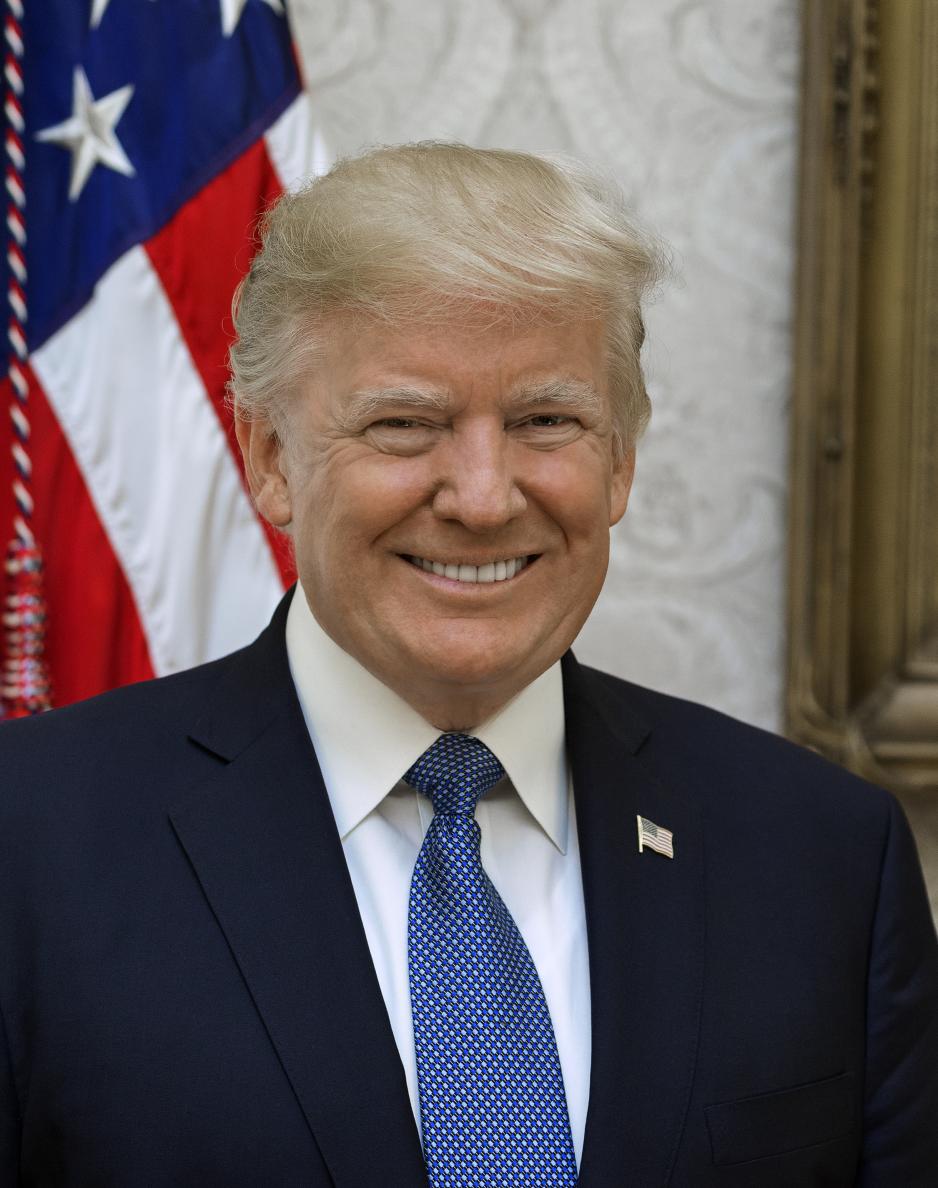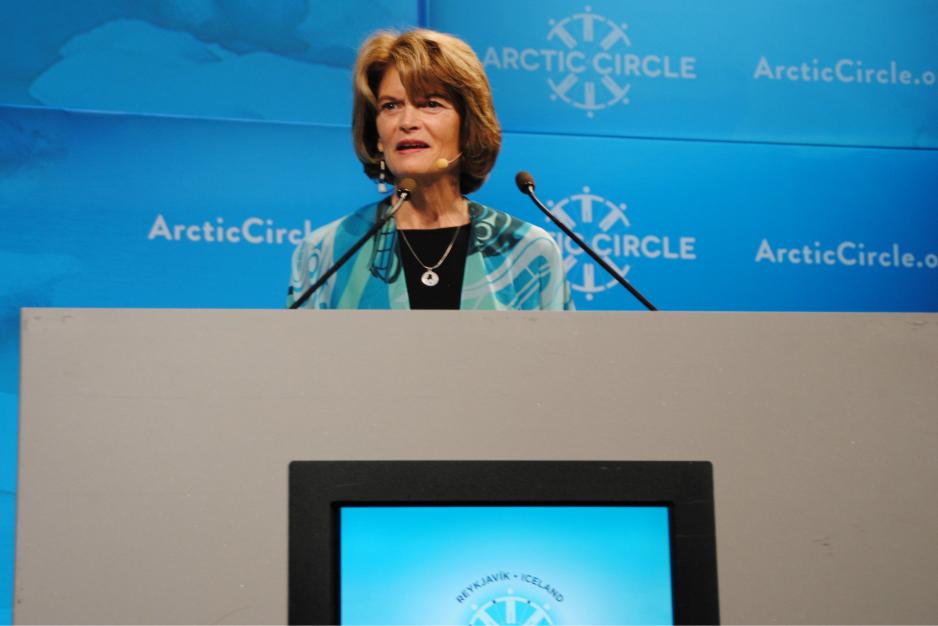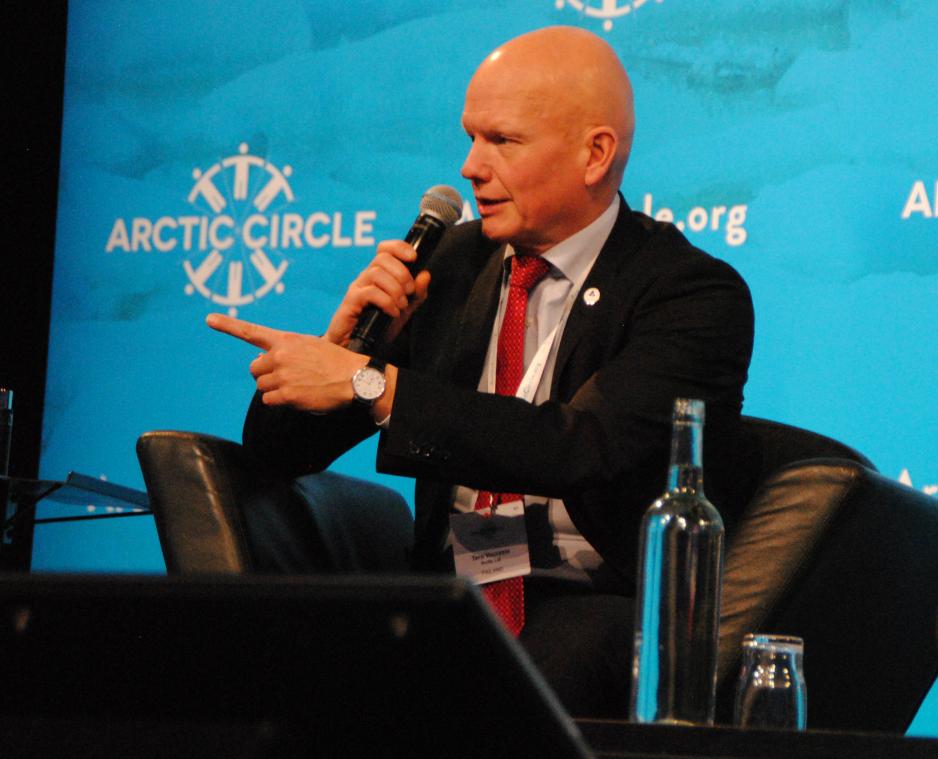An American Threat to the High North

Reykjavik: Protectionism and trade war are like poison to Arctic commerce. If the executioner Donald Trump is allowed to continue his crusade against the rest of the world, it might hit us with strong force. The High North may change from being the engine of international economics to becoming a victim of a nationalistic egotism hardly anyone saw coming.

Paradoxes line up when I try to summarize intense days of discussions during the Arctic Circle conference in Reykjavik. It is the meeting place of economists, business leaders and politicians, each with their different views to the future economic prospects of the High North.
In the shadow of Trump
Donald Trump casts a long shadow over most of the largely optimistic predictions on behalf of people and businesses in the High North.
But he barely knows that.
Because according to Republican senator Lisa Murkowski from Alaska, the Trump administration has barely appointed staff of significance for the High North. Instead, Donald Trump tears apart all the work that was done while the USA held the chairmanship of the Arctic Council during Barack Obama’s presidency.
This point is further elaborated on in an interview High North News has done with John P. Holden, former advisor to Obama. Holden says there are still people in the Trump administration who work hard on issues related to the High North, however, he adds, they do this despite Trump rather than because of him.
Tramples down
The fact that the Arctic is disappearing from American politics is just one of the problems. In addition, there is Trump’s attack on every international agreement there is. He tears apart the Paris Agreement, with severe consequences for the genuine Arctic. He withdraws from international agreements on trade and arms control. He openly encourages a form of nationalism that scares anyone who is watching.
No one is hit harder by trade bans and high custom tariffs than those of us who live up north. Countries and businesses in the High North share a common fate when walls and barriers are built between countries.
According to Tero Vauraste, President of the international Arctic organization Arctic Economic Council, the High North is hit two to three times harder than other regions by trade wars. The Arctic Economic Council is an umbrella organization for business in the High North.
The explanation is in and of itself rather obvious.
The High North is hit harder than the rest of the world by trade wars.
The High North is, by and large, a raw material producer; be it about proteins, minerals or energy. What we have in common is that we depend on export in order to sell our products.
Arctic free zone
These sectors are by their very nature set for future growth. The need for our products is highest where population growth is at its strongest – and that is far beyond our own borders.
Border walls, whether they are called custom barriers or anything else, limit all export opportunities.
We cannot rely on trade amongst ourselves either.
Because roughly speaking, we produce the same thing.
An Arctic free trade zone is a fascinating future vision that will, nevertheless, not solve the problem.
When Donald Trump keeps torpedoing one international agreement after the other, when he fosters nationalism and protectionism, it takes its extreme toll on export-dependent business in the High North.
However, there are also other problems ahead.
Russia and Brexit
The sanctions against Russia following her annexation of the Crimea in 2014 do not only hit Russia hard, it also hits us. A potentially vast market is currently non-existing.
The British exit from the EU reinforces the impression of nationalism dominating international trade and migration.
The fact that no countries stand to benefit from trade war and protectionism is a new paradox.
Icelandic economist Asdis Kristjansdottir presented figures that go to prove just that. Even if there is much insecurity surrounding future predictions, the trade war appears more likely to hit the USA than China.
But most of all it will take its toll on those of us who live and work in the High North.

This editorial originally appeared in Norwegian and has been translated by HNN's Elisabeth Bergquist.
